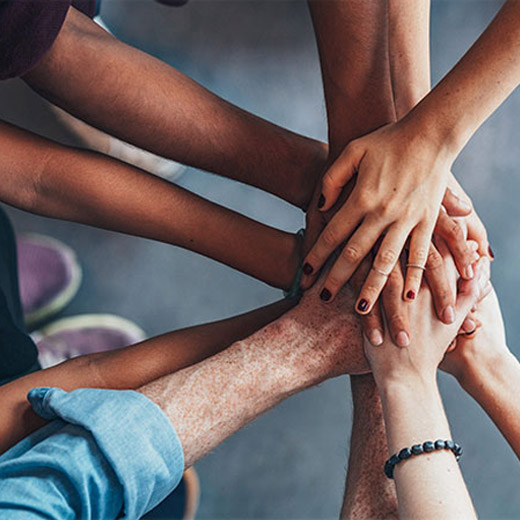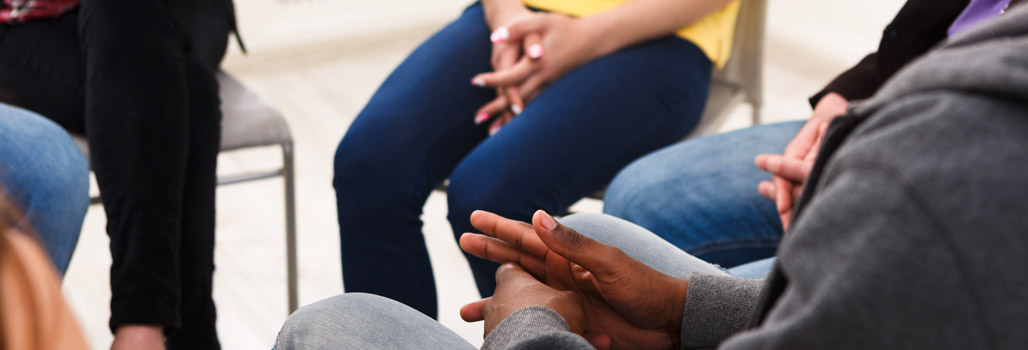Due to the difficulties that are associated with alcohol and drug disorders, many individuals do not know where to turn. You can treat dependence even though it is a disease, and long term recovery is attainable through professional rehab intervention methods.
We will detail how addiction recovery is possible for you or a loved one if an holistic treatment method is adopted.
What is Addiction Rehab (Rehabilitation)?
When we refer to addiction ‘rehab’, it includes therapeutic interventions and medical treatments required to tackle addictions on substances such as benzodiazepines and illegal drugs including meth. Rehab programs are best when they are personalized to your individual needs, and may include residential programs, outpatient care, medically-assisted detoxes and aftercare.

Facts & Statistics about Addiction in Roseville
Prevalence of Substance Use Disorder, by Drug Type
(IN THOUSANDS)
- 2,7578.5%Any Substance
- 2,0886.4%Alcohol
- 1,0683.3%Ilicit Drugs
- 2060.6%Pain Medication
Drug- and Alcohol-Induced Deaths by Age Group, California, 2016
- Alcohol-Induced
- Drug-Induced
- 18 to 250.5
- 9.6
- 26 to 354.3
- 13.9
- 36 to 6424.2
- 22.9
- 65+23.7
- 9.4
Drug Use, by Selected Type and Age Group California, 2015 to 2016
- 12 to 17
- 18 to 25
- 26+
- Marijuana*13.2%
- 34.0%
- 13.5%
- Misuse of Pain Medications3.5%
- 8.0%
- 4.3%
- Cocaine0.8%
- 7.2%
- 1.8%
- Heroin0%
- 0.4%
- 0.2%
What are the treatment options available in Roseville?
Understanding and healing the primary causes behind your drug or alcohol addiction can be achieved through the use of an holistic treatment approach. Even though addiction symptoms need to be addressed, life skills will also be encouraged in order to focus on the main causes of your dependency.

Private Residential Programs
If you live at the facility where you are receiving your treatments, you are taking part in a residential treatment program. It is obviously beneficial to have round-the-clock care and treatment options. There is substantial value in removing yourself from the home environment and becoming fully immersed in the addiction treatment program, because you are not vulnerable to the triggers and stressors that may cause you to use substances.
If you stay in a safe and supportive environment, you have a better chance of completing your addiction treatment program while avoiding relapse and its potential pitfalls. If you struggle with a serious substance dependency, or you suffer from a dual diagnosis or co-occurring illness, a residential rehab program will be recommended.
Recovery from addiction is achievable if you take part in a residential treatment program, but if you want to maintain sober living you are going to need to face up to the challenges that come with the first few months of recovery. Upon completion of your inpatient rehab program, you must transition towards further independence as you build goals for your new life.
Do You Need Help?
Immediate admissions available!

Sober Living Programs
You can develop the skills necessary to exercise control over your life by taking part in a sober living program, which will guide you through the early stages of recovery. This will be achieved by:
- A house manager to check in regularly with you
- Develop boundaries for good behaviors in recovery
- Support and new friendships from those who are there for the same reasons as you.
Outpatient Programs
Outpatient programs are easier to adjust to so that you can maintain any family/work commitments and still undergo treatments, by attending the rehab center at your own pace.
Outpatient programs usually provide you with:
- Education on drug or alcohol abuse
- Therapy and psychological interventions that include group and individual therapy – Outpatient treatment programs can last anywhere from a few months to over a year, this depends on your requirements.
Detox Only Programs
The first phase of a rehab program is detoxification, which eliminates any traces of substances from your body and addresses your physical dependency on it. Withdrawal symptoms usually start during the detox phase and your body begins to stabilize without alcohol or substances it was physically dependent on.
This detox phase marks the beginning of your rehabilitation journey, the next stage is to tackle and address the underlying problems that lead to your addiction, so that those same patterns do not happen again. It is likely you will experience withdrawal symptoms and cravings for a while after your detox is complete. You can lessen the odds of relapse by developing coping strategies for long-term recovery success.
Paying for Private Treatment
If you have chosen to go ahead with private rehab, you will need to pay with your own funds or make a claim through your healthcare policy. Most insurance companies contribute to at least part of the costs associated with addiction rehab, such as a medically-managed detox, rehab treatment and medication, as well as post-treatment support.
Your provider’s terms and conditions will dictate the amount of cover you can claim for. It is always advised that you inquire about your cover prior to enrolling in a treatment program. Visit our Verify Your Insurance page to learn about the cover you qualify for.
If you do not want cover from your insurance provider, you will need to pay the cost of treatment yourself. Some rehab centres provide payment plans to clients so that cost is not a barrier to treatment.

State Funded Programs
If you want to overcome your substance or alcohol problems but due to limited resources cannot afford private treatment, you can apply for a state-funded rehabilitation program. Using funds from a combination of state, federal and Medicaid budgets, these treatment programs remove hurdles to rehab by offering:
- Medically-supervised detox
- Addiction Rehabilitation and relapse prevention services.
These sorts of programs are there to support those on tight budgets or those with little to no health cover. In order to apply you need:
- Supporting Evidence that you are a resident of the US
- Proof of earnings
- Proof of where you live
- Medical details about your addiction
Click here to more about applying.
To find the contact details for your state agency, this document provides the needed details
The following state-funded addiction rehab programs are available in Roseville:
California Recovery Center
423 Oak Street, Roseville, CA 95678
916-333-0865
https://calrecoverycenter.com/Aegis Treatment Centers LLC
1133 Coloma Way, Suites B and C , Roseville, CA 95661
916-774-6647
https://pinnacletreatment.com/aegis/Granite Wellness Centers Adolescent Program
730 Sunrise Avenue, Suite 250 , Roseville, CA 95661
916-787-4357
https://www.granitewellness.org/
Maintaining Addiction Recovery in Roseville
Leaving a rehab center and returning home can prove difficult for people starting out in recovery. During your stay, you have been in a controlled and safe environment, supported by professionals.
As you adjust to life after rehab it is very likely that you will find yourself in situations that you still need to learn to address. Clients who had severe dependencies find long term recovery more difficult when they leave rehab if they do not have a social support structure. Relapse can happen if you don’t have the appropriate aftercare or support to guide you into your new future.
The following AA/NA meetings are available in Roseville:
BETTER FOODS DELI
A Better Opportunity, Basic Text, Smoking and Open:
900 Douglas Boulevard, Roseville, CA 95678
Sunday: 6:00 PM
https://www.drugstrategies.org/Garden Grove Friends Church – Garden Grove
Open, Literature Study and Format Varies:
12211 Magnolia Avenue, Garden Grove, CA 92841
Friday: 7:30 PM
https://www.narcotics.com/AA - Girls Night Out Roseville
Open and Women: 725 Vernon Street, Roseville, CA 95661
Monday: 6:30 PM
https://alcoholicsanonymous.com/
Aftercare & Alumni Programs
An aftercare program is a resource to support your recovery when you go back to your daily life. Because relapse rates can peak as high as 60%, and because life can be stressful, relapse prevention & support is an important tool to support your long-term recovery plans.
Once you are near the end of your treatment program you should consider the counseling and therapies that are most useful to long-term abstinence and an aftercare package will be developed to help you. After completing your rehab program you will become eligible to join an alumni community program so you can stay in contact with staff and others in recovery.
With this network you will have access to fun events and receive encouragement and advice from other ex-clients who are in recovery as well. In addition, you can take the opportunity to be supportive of others if you decide to.
Support Groups (Fellowship Meetings)
Taking part in support groups is vital because social structures encourage long-lasting addiction recovery. Recovery support groups like AA (Alcoholics Anonymous) and NA (Narcotics Anonymous) offer ongoing support with the help of the 12 steps and regular meetings.

When you take part in support groups, you will the opportunity to share your experiences and listen to other individuals who are also in recovery. Friendship, empowerment and accountability for our actions are key to long-term recovery, and support groups provide many with the necessary tools to stay sober.
Support for Families & Children Affected by Addiction

Each person in a family is affected, to different degrees, by the individual struggling with addiction. Help and support is just as important for the family members as it is for the individual with the dependency. Taking part in a family support group can help you to cope better, and also encourage you in providing greater support to the person with the dependency.
Some Family and Child Support Groups are:
- Parents of Addicted Loved Ones
- SMART Recovery Family & Friends
- NAMI Family Support Groups
- Al-Anon
- Families Anonymous
- Alateen
- Nar-Anon









